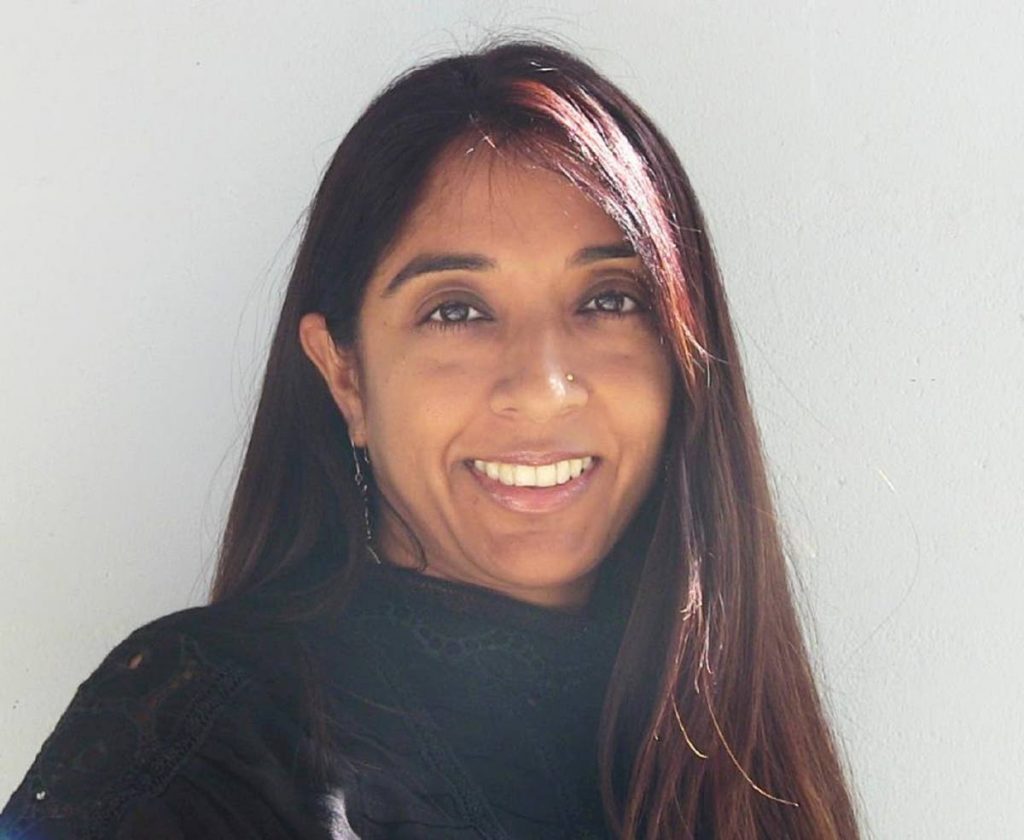A call to spirits in San Juan

Diary of a mothering worker
Entry 295
DR GABRIELLE HOSEIN
“IF PEOPLE truly catch the spirit,” Ziya reasoned, “then it means that gods are real and, if gods are real, then magic is real because gods are basically magic.” She may not have had the right words, but so went her seven-year-old murmuring on Saturday as we headed home from the annual Heritage Masquerade Festival hosted by the Omo Oduduwa Institute.
Two hours earlier, we were driving into the winding roads of Petit Curucaye in San Juan as light rain hovered on the hilltops. I was thinking about my own atheism and, yet, the importance of valuing the pantheon of possibilities by which your neighbours make spiritual sense of the world.
Drumming had already begun when we arrived and we sat listening to the depth of refrains remembering Zion and calling on the Egungun, who are regarded in Yoruba tradition as a manifestation of the spirits of ancestors.
There was so much I couldn’t explain to Zi. We both know far too little about Ifa/Orisha practices, and what they can teach about spirituality, and communion among the ancestral, divine and earthly.
It really does require an invitation, or mutual openness, to grasp the significance of different colours, of deities and the designs on shrines, of invocations with white rum and water, and blessings asked for and given with ash, smoke and fire.
Most humbling was seeing the combination of Black Indian masquerade, specifically born out of Trinidad’s Carnival, with Yoruba practice, which survived the crossing of slave ships, and is ancestor to Carnival itself. Black Indian masquerade, like Ifa/Orisha beliefs, especially combines African traditions with reverence for those who came before on this land.
Indian mas, whether red or black or fancy, traces its lineage from Indigenous People’s beliefs, designs, and ancestors from across the hemisphere. It invokes them in the practice of Carnival mas-making, and as a warrior mas that is reverently worn, shaping self and life not just for two days, but throughout the year.
We think that Indian masquerade makers are simply Africans or Indians, or Orisha or Hindu, or wire benders or electricians, but even when not wearing this masquerade, its spirit walks in their shoes.
This is the thing about Trinidad Carnival. Spirituality is not just about the main religions we can identify. Blue devil, jab jab and Indian mas are equally spiritual, where medicinal plants and moon phases matter, where ancestors are called upon regardless of their race, and where sounds, calls, chants and dances are sacred, handed-down languages.
As the small procession made our way down the hill, led by two Egunguns wrapped in red and yellow cloth with wooden mask faces, we stopped on the Santa Cruz Old Road at the La Venezuela statute of an Amerindian man.
There at the junction, water was poured in all four directions to acknowledge the universe and all its elements, the Indigenous presence in Santa Cruz, the river that was once honoured as both life and as escape from colonial authorities, and the contribution of African rites to recognising the land and all our people as now, here, together in shared survival.
The procession gathered by a small Spanish-style, concrete gazebo further in. It wakes you up to remember that there are a thousand places sacred to First Peoples, which could change how we ethically move through this space if only we continued to honour them as sacred today. It’s easy to forget that we walk on the bones of those from the past.
At both spots, spiritual manifestation highlighted the momentous resonance of the moment. Zi stood observant of a world view she was witnessing for the first time, deep with questions about gods, ancestors, cultural traditions and reality, and turning to a child’s framework about magic. Hopefully, such wonder is only a beginning.
From attending church with her grandparents, Zi has become more familiar with Christianity. I took a world religions approach to school so, last year, Zi was in Hindu classes and, next year, she’ll be in Muslim ones. I felt she should understand different belief systems, be able to connect with Trinidad and Tobago’s diversity, and decide for herself what role theology, or the study of God, plays in her life.
In my rearview mirror, I could see her murmuring as her mind worked through what such a new experience meant. Above our heads, the hovering rain finally began to descend.
motheringworker@gmail.com
caption
Egunguns and Black Indians participate in the annual Heritage Masquerade Festival on Saturday hosted by the Omo Oduduwa Institute.
Photos by Maria Nunes


Comments
"A call to spirits in San Juan"